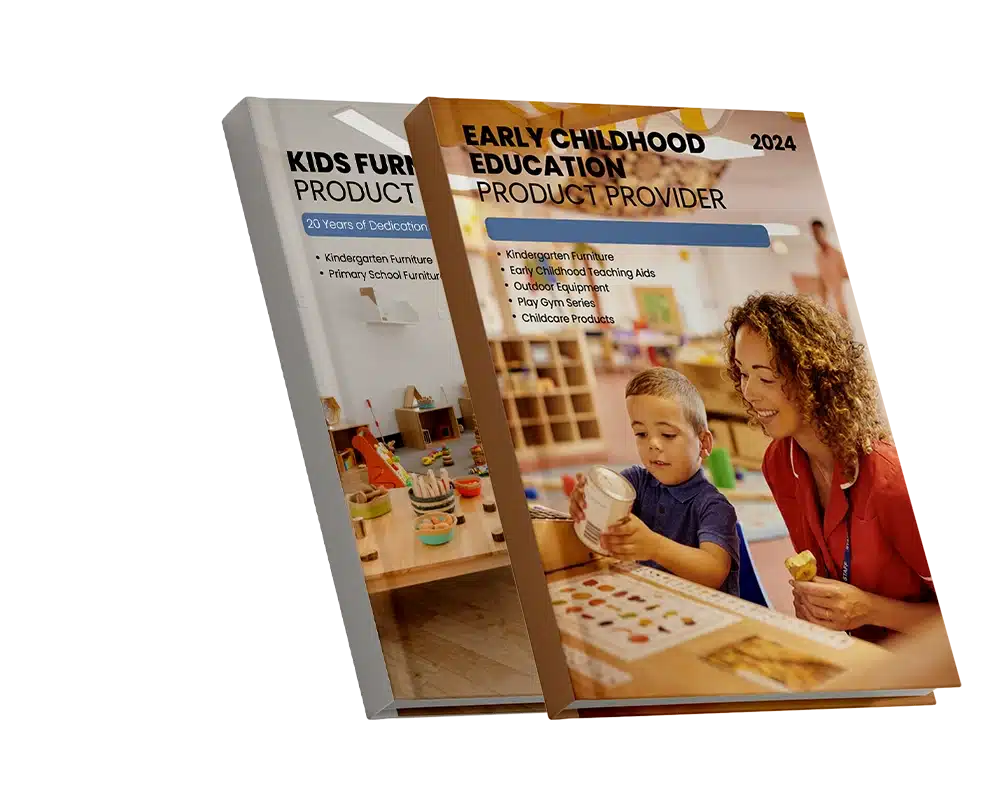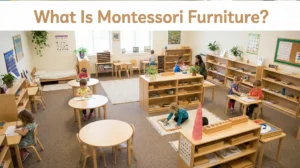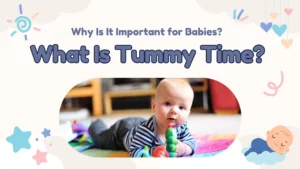Teaching preschool is more than just singing songs and organizing playtime. It demands a special blend of patience, creativity, communication, and educational insight. Whether you’re an aspiring early childhood educator or a school administrator hiring for your preschool team, understanding the core skills that define an exceptional preschool teacher is critical. This guide breaks down the 12 must-have preschool teacher skills that make a lasting impact on young learners and help build a strong foundation for their future.
1. Classroom Management Skill
- Building a Respectful Classroom Culture
- Establishing Routines That Build Security
- Balancing Structure with Flexibility
Managing a preschool classroom means balancing structure with flexibility. Preschoolers thrive in environments where they know what to expect routine offers them security, and clear boundaries help guide their behavior. A teacher must create these systems while remaining responsive to the children’s changing emotional and developmental needs.
Beyond routines and rules, classroom management includes redirecting conflicts, handling transitions smoothly, and fostering independence. The best educators make classrooms feel safe and predictable, allowing every child to participate and learn confidently.

2. Communication Skill
- Engaging Families Through Transparent Communication
- Communicating Clearly with Young Children
- Building Trust Through Parent Communication
Strong communication is indispensable when you aim to excel at your preschool teacher duties. First, you need to speak in a way young children can understand simplifying language, using gestures, asking open‑ended questions, and actively listening to their responses. But communication doesn’t stop with the kids; you must also maintain clear, honest, and compassionate dialogue with parents and caregivers. Explaining children’s progress, sharing concerns, and collaborating on next steps all fall under the umbrella of communication skill.
Moreover, good communication supports classroom management: anticipating transitions, explaining rules, and resolving conflicts depends on how well you can communicate with children and adults alike. When you master communication as a teacher skill, you build stronger relationships, increase transparency, and foster a supportive community around your classroom.

3. Creativity and Imagination

A great preschool teacher turns everyday moments into exciting learning experiences. Creativity allows you to design lessons that are not only educational but engaging whether you’re making alphabet soup in pretend kitchens or building castles from cardboard.Imaginative teaching fosters curiosity, problem-solving, and social development.
4. Emotional Intelligence
Preschool teacher skills include knowing how to respond to children’s emotions with empathy . Emotional intelligence helps teachers notice when a child is overwhelmed or disconnected and then respond with compassion instead of discipline.Teachers who demonstrate emotional awareness not only build deeper connections with students but also create a classroom where emotional safety encourages better learning outcomes.
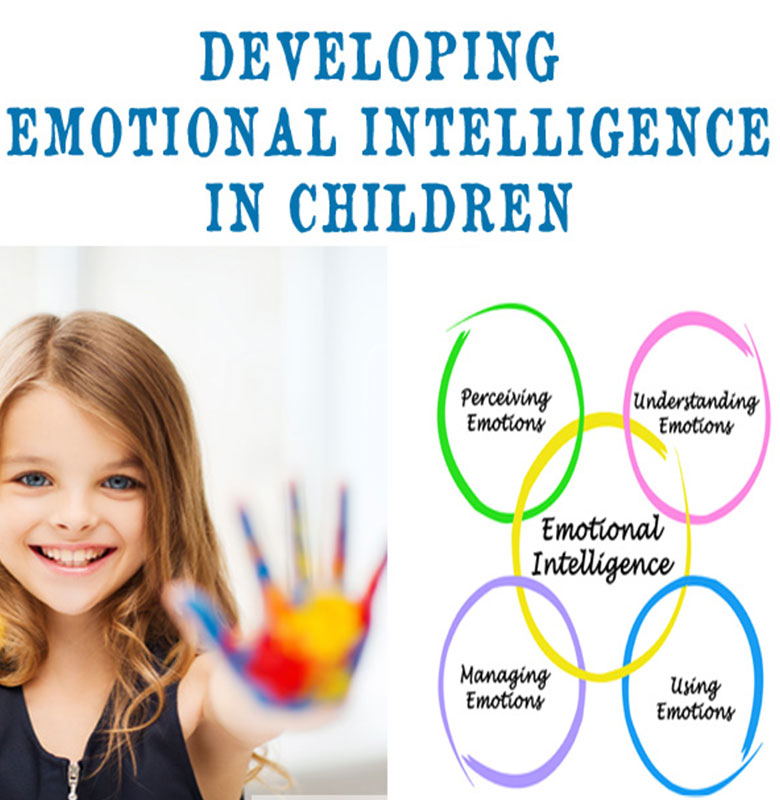
5. Patience and Flexibility
No two preschool days are ever the same. A good educator must have patience when children struggle, act out, or need repeated guidance. Without it, frustration quickly replaces understanding.Flexibility goes hand-in-hand with patience. When a child refuses to participate or an activity flops, teachers must quickly pivot. Adaptability allows teachers to embrace unexpected challenges with calm, making it one of the most important skills of a teacher in early education.
At the same time, when children make some small troubles, we should also be patient with them, guiding them step by step instead of criticizing them directly. Only by calming down can you discover the shining points in each child, and you will become their role model, allowing them to learn this virtue from you.
6. Observation and Assessment Skills
- Turning Observations into Teaching Decisions
- Observing with Purpose, Not Just Presence
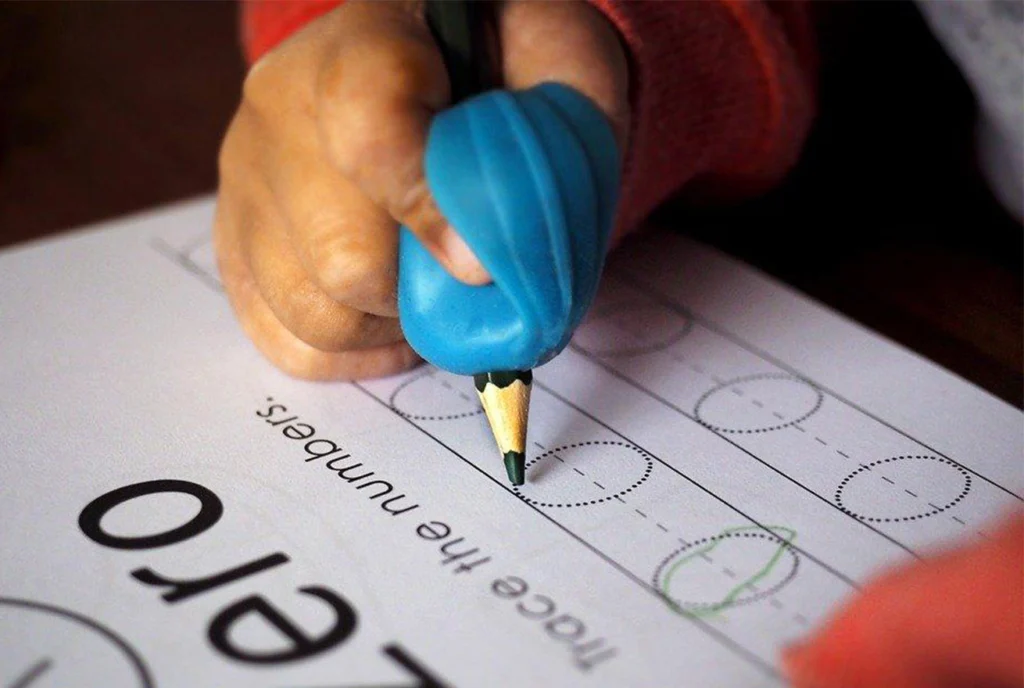
Observation helps teachers identify learning styles, developmental delays, or behavioral patterns. It’s not just about watching. It’s about interpreting actions to adjust lesson plans and offer targeted support.Assessment doesn’t mean tests. For preschoolers, it involves informal checklists, notes, or photos that capture growth over time. These observations are essential to fulfilling preschool teacher requirements and communicating progress with parents.
7. Organization and Time Management
- Structuring the Day with Purpose
- Preparing in Advance to Stay Present
- Creating Stability Through Classroom Systems
An often under‑appreciated category among teacher skills is organization and time management yet for a preschool teacher, it’s absolutely foundational. Consider the typical schedule: circle time, free play, snack, outdoor play, nap, art, cleanup. Without strong organization you risk delays, confusion, and lost opportunities. You need to plan lessons, gather materials in advance, design transitions, and ensure ample time for each segment without the day becoming chaotic.
Time management means you can accomplish your educational goals, handle paperwork or communication tasks, and still stay present and responsive to children.A well‑organized classroom reflects professionalism and helps children feel secure in the predictable flow of their day. In this way, strong organization and time‑management skills translate directly into effective fulfillment of your preschool teacher duties and support meeting administrator or regulatory expectations.
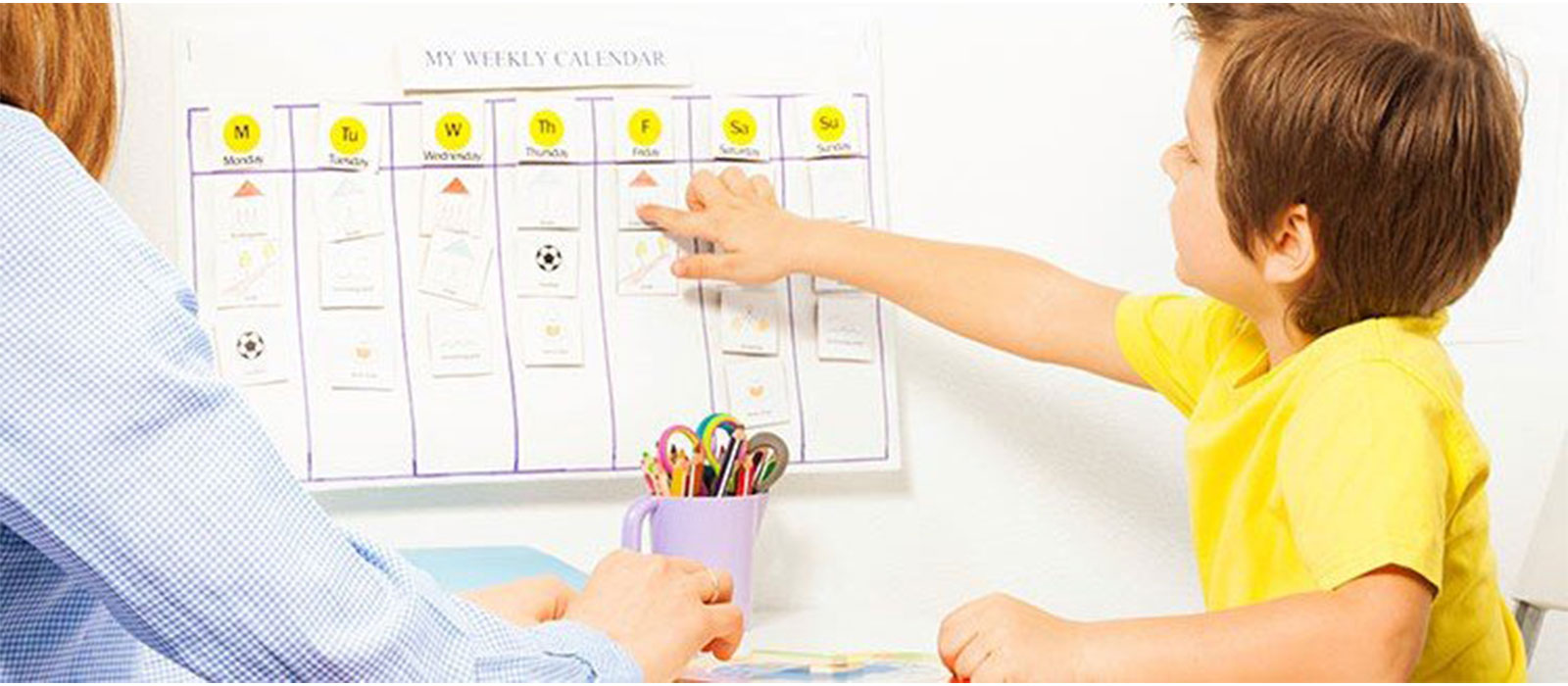
8. Cultural Sensitivity
In today’s diverse educational landscape, cultural sensitivity ranks among the critical skills of a teacher. As a preschool teacher you will likely work with children and families from a variety of ethnicities, languages, traditions, and socioeconomic backgrounds. Cultural sensitivity means you recognize and respect those differences, integrate inclusive practices into your curriculum, and avoid inadvertently privileging one cultural viewpoint over another. For example, you might choose books and bookshelfs representing different family structures, include songs from multiple languages, and celebrate a range of cultural holidays.
You might also communicate with families in ways that respect their traditions and invite them to contribute to classroom life. When you operate with cultural sensitivity, you create a classroom environment where every child feels seen, valued, and engaged advancing both learning and equity, and supporting your role’s broader mission beyond the immediate daily tasks.
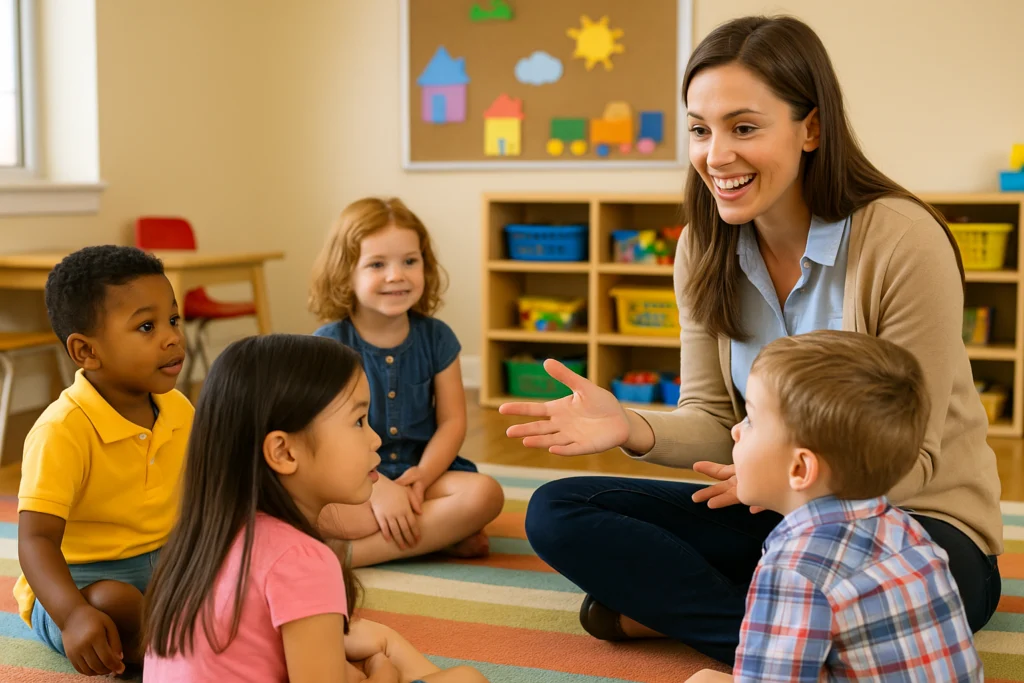
9. Teamwork and Collaboration
Teaching is rarely a solo job. Preschool teachers often work with assistants, therapists, administrators, and parents. Collaboration ensures consistency and better outcomes for children.Good teamwork requires active listening, shared planning, and open communication. Teachers who value collaboration are more likely to create stable, supportive environments an essential part of early education.
10. Passion for Early Childhood Education
Passion fuels resilience. It keeps teachers going through challenging days, motivates them to stay informed on best practices, and allows them to connect with children on a deeper level.Educators with genuine passion create energy in the classroom. Their enthusiasm becomes contagious, driving curiosity and love for learning in their students.

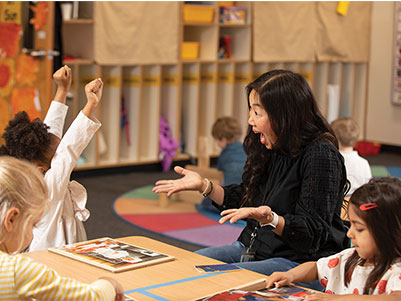

11. Physical Stamina
A practical but often overlooked set of teacher skills involves physical stamina. Working with preschoolers is energetic: you might find yourself crouching, bending, lifting, guiding children on the floor, or monitoring outdoor play. You’ll likely help with snack setup, classroom clean‑up, supervising playgrounds, and sometimes even calming a toddler mid‑melt‑down. The combination of physical, emotional, and mental demands means that staying active, healthy, and resilient is part of the job. T
eachers with strong physical stamina can maintain consistent presence, stay engaged during long days, and avoid fatigue that might affect classroom dynamics. Recognizing this as part of the role helps you prepare, schedule appropriate breaks, and maintain your own wellbeing an essential component to fulfilling your preschool teacher duties sustainably.
12. Problem‑Solving Ability
- Remaining Calm and Collected During Disruptions
- Making Quick Decisions with Confidence
- Adapting the Environment to Solve Persistent Issues
- Demonstrating Problem-Solving for Young Learners
Finally, problem‑solving ability is a key component of effective teacher skills. Whether you’re dealing with an unexpected power outage, a child who refuses to participate, a spill in the art area, or a conflict between children, you will frequently encounter situations that demand creative, calm responses. Good problem‑solving means assessing the situation, considering children’s emotional state, applying your knowledge of development and behaviour, and devising a timely, constructive response.
You may have to adjust an activity on the fly, mediate a peer dispute, or redesign your room’s layout to improve engagement. Children learn from observing adults who solve problems thoughtfully and respectfully. Cultivating problem‑solving ability ensures your classroom remains resilient in the face of disruptions and that you fulfil your educator role with confidence and flexibility.
Using Soft Play Materials to Support Effective Teaching
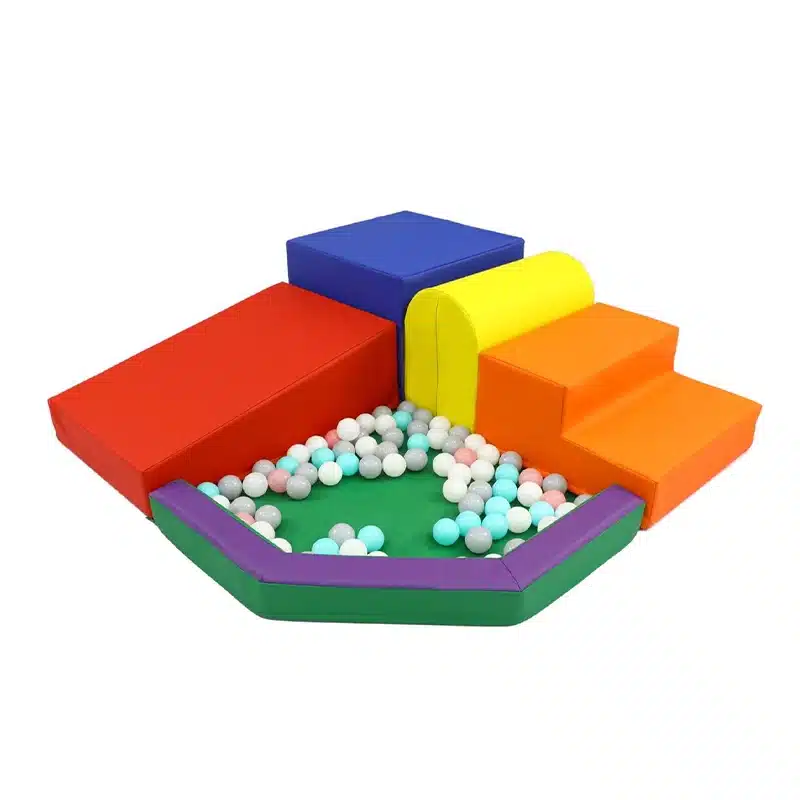
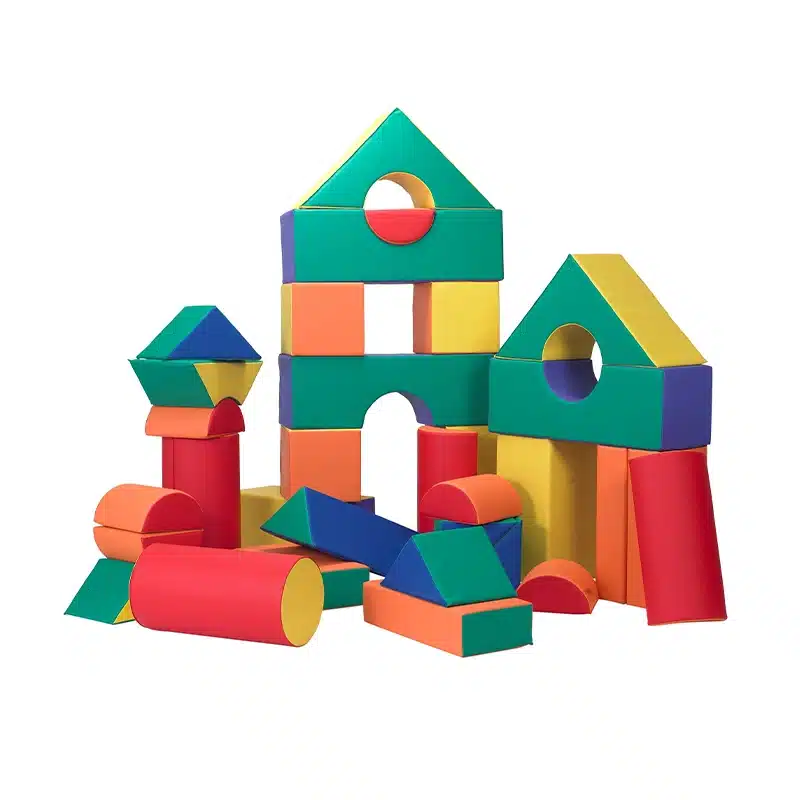
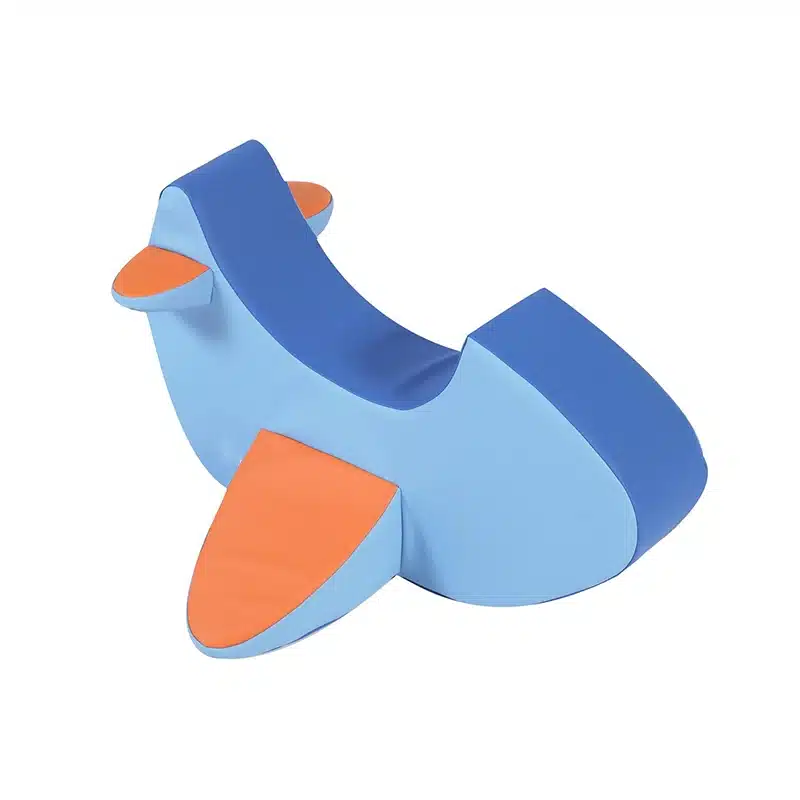
A well-prepared learning environment is a reflection of a teacher’s intention and professionalism. For experienced preschool educators, choosing materials that are both developmentally appropriate and classroom safe is a key part of lesson planning. Soft foam blocks, for example, offer a versatile way to facilitate spatial reasoning, group collaboration, and hands-on discovery, all while maintaining a safe and low-risk setting.
Incorporating these soft, lightweight materials allows teachers to lead more dynamic and movement-rich activities without worrying about injury or noise. Whether used in structured tasks or free play, they support various teaching goals from gross motor development to creative expression, making them an effective tool in every experienced educator’s toolkit.
Improve your preschool teacher skills
Reflect on Your Teaching Practice Regularly
Great teachers grow through self-awareness. By setting aside time each week to reflect whether in a journal, through peer feedback, or simple self-assessment you gain clarity on what’s working in your classroom and what needs adjustment. This habit helps you become more intentional, responsive, and confident in your teaching. Over time, small improvements build into stronger, more effective educational practices.
Use Child-Centered Teaching Approaches
Preschoolers learn best when they’re actively engaged in exploring the world around them. A child-centered approach means designing your lessons around their interests, curiosity, and pace. This could involve hands-on activities, free play, or real-world discovery. Rather than rigid structure, you create flexible experiences that allow kids to lead and in doing so, you nurture independence, critical thinking, and deeper joy in learning.
Pursue Ongoing Professional Development
The most successful teachers never stop learning. Attending workshops, earning certifications, or even following trusted educational blogs can expose you to new methods and fresh inspiration. Professional development keeps your knowledge current and your teaching dynamic. It also demonstrates a commitment to growth,something that benefits both you and your students long term.
Conclusion
The journey of embracing and refining Preschool Teacher Skills is a meaningful one. Mastering each of these twelve domains classroom management, communication, creativity, emotional intelligence, patience and flexibility, observation and assessment, organization and time management, cultural sensitivity, teamwork and collaboration, passion for early childhood education, physical stamina, and problem‑solving ability equips you not only to meet the formal preschool teacher requirements, but to excel in the daily preschool teacher duties that truly shape children’s early experiences.
As you develop these teacher skills, you position yourself for professional growth, classroom success, and most importantly, the opportunity to make a positive difference in young lives. Whether you are just stepping into early childhood education or you’re a seasoned educator seeking renewal, this guide can serve as a roadmap for intentional skill‑building.
FAQs:
1. What are the most important preschool teacher skills?
The most important preschool teacher skills include classroom management, communication, emotional intelligence, patience, and creativity. These skills help teachers create engaging, safe, and developmentally appropriate learning environments for young children.
2. How do I develop teacher skills for a preschool classroom?
You can develop teacher skills by enrolling in early childhood education programs, participating in workshops, observing experienced educators, and gaining hands-on classroom experience. Reflecting on your practice and seeking feedback also accelerates your growth.
3. What are the requirements to become a preschool teacher?
Preschool teacher requirements vary by region but often include a degree or certificate in early childhood education, background checks, and sometimes specific teaching licenses. Passion for teaching and strong interpersonal skills are also essential.
4. What are typical preschool teacher duties?
Preschool teacher duties include planning lessons, managing classroom routines, supervising children, communicating with parents, assessing developmental progress, and creating a nurturing environment that supports both learning and emotional well-being.
5. How can I improve my classroom management skills as a preschool teacher?
To improve classroom management, set clear expectations, establish consistent routines, use positive reinforcement, and remain calm and patient. Observing experienced teachers and attending classroom management training also helps.
6. Is emotional intelligence a necessary skill for preschool teachers?
Yes, emotional intelligence is crucial for preschool teachers. It helps them understand children’s emotions, respond empathetically, manage conflicts, and build trust with students and families,making it one of the most vital skills of a teacher in early education.
7. How can I get high-quality classroom learning equipment
You can click the link below to contact us. Our professional preschool design team is available online to help you select the best educational supplies tailored to your needs.

